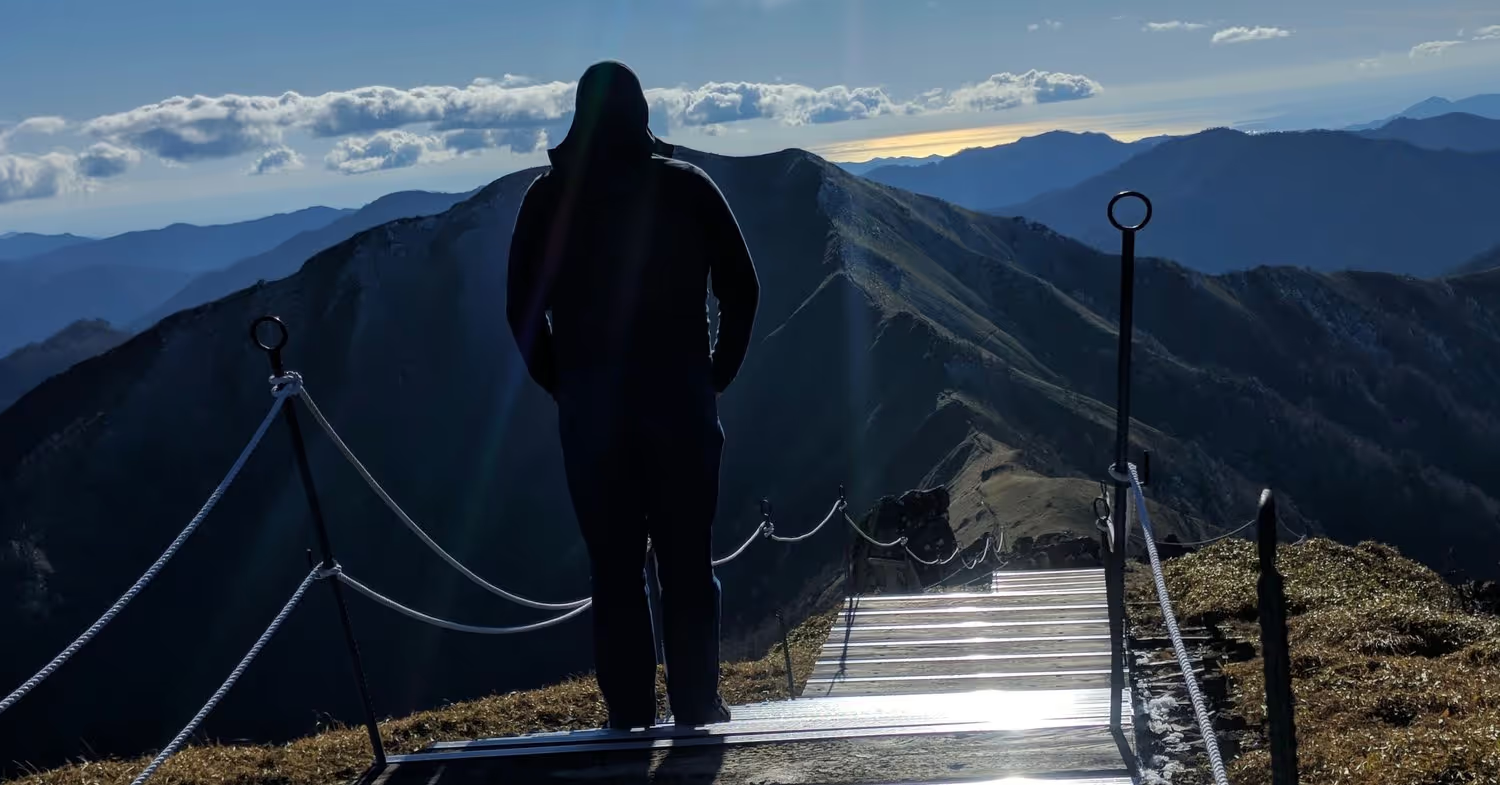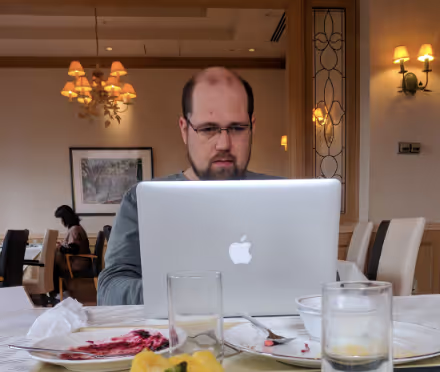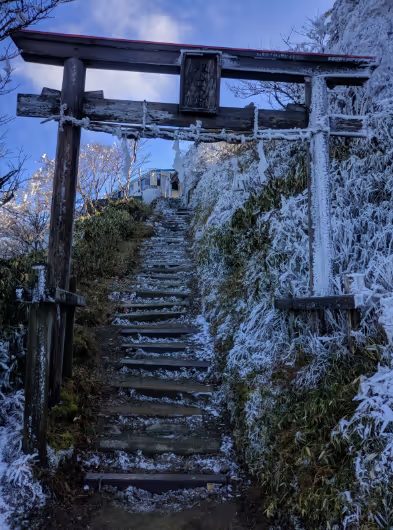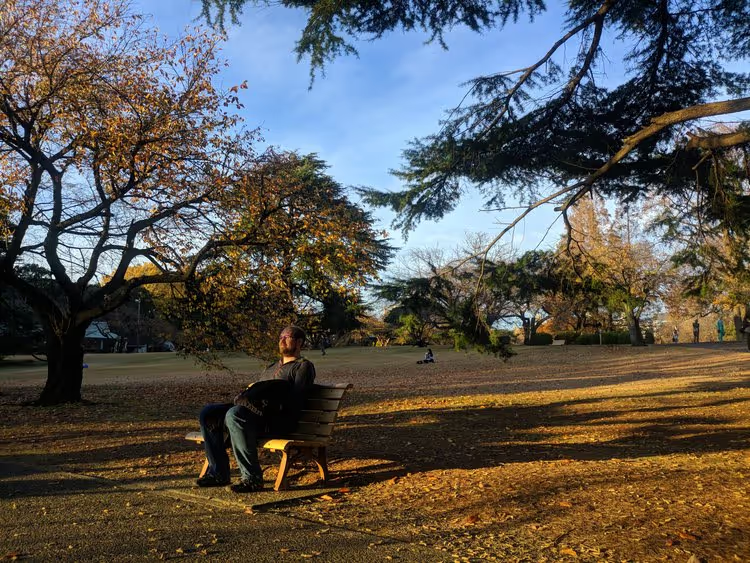On Working Remotely: A Data Scientist's Tips for Staying Effective
At GetYourGuide, we have a pretty flexible work-day framework built on trust.

Key takeaways:
In today’s post we hear from Maximilian Jenders, Data Scientist, who spent a month last fall combining remote work and cross-country travel without taking a vacation day. Learn how he made it work and get his tips so you can do the same.
{{Divider}}
At GetYourGuide, we have a pretty flexible work-day framework built on trust. I don’t have to clock-in or count the hours I'm working in a week, and both my team and manager trust that I will complete my tasks. I like this approach because in the end you can only control whether people are sitting in their seat for their contracted time, not whether they are actually working.
I sometimes make use of this flexibility to work remotely around personal appointments, or to enable me to come to work a bit later, but more rested. That being said, I recently experimented with working remotely for quite an extended period of time.
Have you ever dreamt abstractly about working remotely without thinking about all of the details it would actually entail?
In this post, I will share my experience as well as a few key ingredients that helped make my extended remote work possible.
The Inspiration
Last July, I discovered a fatal plan in my scheduling: I had already taken the majority of my allotted vacation, and there was still a large part of the year left. So, I hatched a plan: I'd seen employees go on vacation and extend their stay abroad by working a few days remotely — why not do something similar, but without the actual vacation?
I hadn't heard of anyone attempting this at GetYourGuide — could I really be the first to combine travel and work? I soon settled on a good candidate destination: Japan. Having been there twice already, I knew I enjoyed the culture, there was plenty to see, and the internet infrastructure, a necessity for remote work, was far superior to that of Germany. Even better, the time zone difference perfectly fit my plans: 9:00am in Germany is 5:00pm in Japan. So, I could be a tourist during the day and then work in my evening, in sync with my Berlin team.

1) Plan ahead, and think about the necessities
I aimed for a 4-week period of remote work in November, since this seemed a good trade-off between the time I needed to acclimate, the flight price, the cost of living in Japan, and the size of my request. When I brought up the topic with my manager and team, I had been with GetYourGuide for a little over a year, so I wasn’t certain how they would react to my proposal. After all, remote work for such a prolonged time requires a great amount of trust in both reliability and work ethic. I was pleasantly surprised when everyone responded, "why not" instead of having to do a lot of convincing and selling to get everyone on my side. Of course, there were questions that needed addressing — how did I plan to maintain a work environment (quiet rooms, stable internet connection), how would this planned schedule work (my work day would extend past 1-2am), and how did I see this schedule impacting meetings or catch-ups?

I worked on providing good answers to these questions and eyed appropriate projects that might not require too much synchronisation between stakeholders. While it took a solid month to get the sign-off from everyone involved, they finally did and I was ecstatic. From there, I started to plan my trip in even more detail.
I wanted to experience as much of the fall season as possible and booked transportation and accommodation across the country. Investing time to plan beforehand made the actual traveling experience much more enjoyable since I didn’t have to deal with planning once I was in my destination.
2) Have backup options available
While every hotel I booked had internet available, the quality was varying. Some rooms didn’t have great Wifi reception and other hotels had peak traffic in the evening hours, resulting in reduced speed. Thankfully, I also rented a mobile 4G connection that had both decent speed and no data cap — this proved clutch for many video calls.

While the connection at normal hotels wasn’t always reliable enough, there were also co-working spaces available, some of which offered accommodation. These co-working spaces are geared towards remote worker’s needs with internet, some quiet areas, and meeting rooms while also offering options to socialize and network with fellow professionals. Not only do you meet “normal” employees working for companies that are not big enough to afford their own office space, but I also got a glimpse into the world of digital nomads. They are (mostly IT) professionals who do not have a traditional home, instead spending their life working remotely and traveling around the world, living in cities for weeks or months at a time until they are keen to explore something new. Though it sounds fabulous, one downside is that many of them have to adjust their work hours to their employer’s HQ timezone, even if that means working through the night.
While this is not a lifestyle that I’d be keen on pursuing, talking to these nomads provided me with interesting perspectives into how they keep in touch with coworkers and maintain discipline in their schedule: many press for a rigid day schedule to keep their sleep patterns constant and daily standups are considered even more important. They tend to aggressively defend their core work hours against outside requests for relaxation or socializing — this is particularly important since many acquaintances or even family members have the misconception that the nomads have a lot of flexible time (which can be true to some extent). If they weren’t so aggressive, they would get distracted by non-work requests and be forced to stretch their normal work hours during the day to make up for lost time.
3) Know your limits

Going in, I knew my trip would be stressful — I basically split up my day into 9 hours of travel, 8 hours of work, and 7 hours of sleep. I knew this would leave very little time for relaxation. Although I am usually quite comfortable with very active holidays, I still thought this schedule might stretch my limits. To combat this, I sprinkled some more quiet activities into my planning, especially on the weekends. For me, this was an occasional leisurely hike in the woods or forest, or most often a visit to the local Onsen, a traditional japanese hot bath fed by volcanic geysers. Quietly sitting in hot water (sometimes outside) helped me decompress from a long week. Depending on the location, the Onsen was either close to my accommodation or even in the hotel itself, enabling me to take a half-hour break during my work period.

If I hadn’t used up all my vacation in the first half of the year, I would have liked to use a few days in the middle of my stay to gain some distance from work and focus more on the experiences.
4) Look for opportunities to work flexibly
The good thing about having our data and development notebooks in the cloud is that I only need my laptop and a semi-stable internet connection in order to work. GetYourGuide already enabled me to keep to a flexible work schedule, so I looked for opportunities to continue this while working remotely. I found train rides great for this — the Shinkansen (bullet train) is a very reliable and quick way to travel, and it also makes for a good and quiet work environment. Using my travel time productively, I not only managed to occasionally cut down on some of my nightly work, but I could also diagnose and fix failures in our data pipelines earlier than usual, reducing down-time for myself and my team.
5) Communicate aggressively
There are two types of communication: incoming and outgoing. I knew physical distance required a little more outgoing communication than usual — keeping the team updated not only about my progress but also changes in my plans (e.g. when I was sitting in a traffic jam and couldn’t make it in time for the standup) or asking to move meetings that would conflict with my dinner plans. I underestimated how much remote work would also impact the incoming communication. For the most part, we communicate via video conference, Slack, and email; however, as a team, we also frequently discuss issues or findings as they arise at our desks, and not all of this makes it into Slack or our daily standups. As the sole person working remotely, it took me a week to notice this and react by investing more time in not just sharing my status, but also in taking the initiative and frequently asking for updates and clarifications. I feel that I even maintained this (to a lesser degree) after I returned — following up more diligently helps hold stakeholders accountable and move projects forward.
Closing thoughts

Reflecting back, I thoroughly enjoyed my month of remote work, and I think it was beneficial overall: it didn’t cost the company anything, being in a different timezone shortened our response time to possible issues, and I became better at prioritizing my work with my schedule in mind. The most prominent downsides, a slowdown in communication and possible difficulties in maintaining a good work schedule, can be tackled effectively by proactive planning. This period was definitely worthwhile, and besides the career upsides and proving the trust placed in me was justified, I also met a lot of fascinating people on my journey that helped me expand my horizons and grow as a person.
If you are interested in trying remote work for a while, I highly encourage you to bring it up with your manager and team — for me, this surely won’t be the last time I mix business and pleasure.
Interested in joining our Data and Engineering teams? Check out our open positions.




.JPG)
.jpg)
